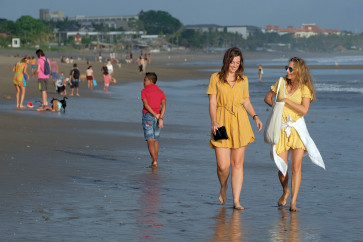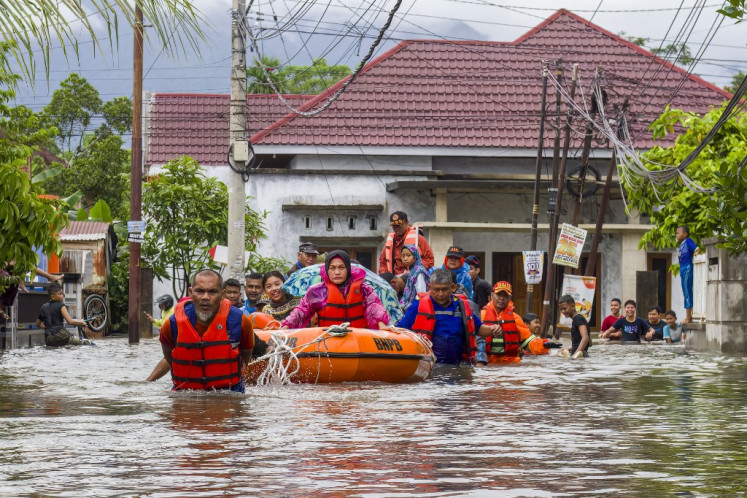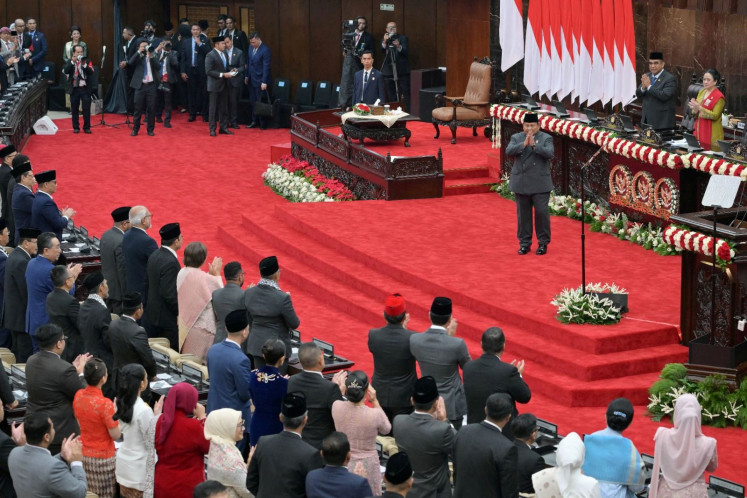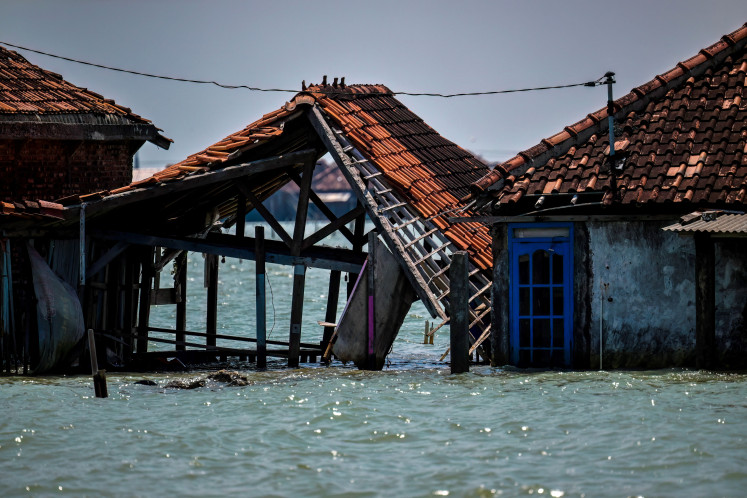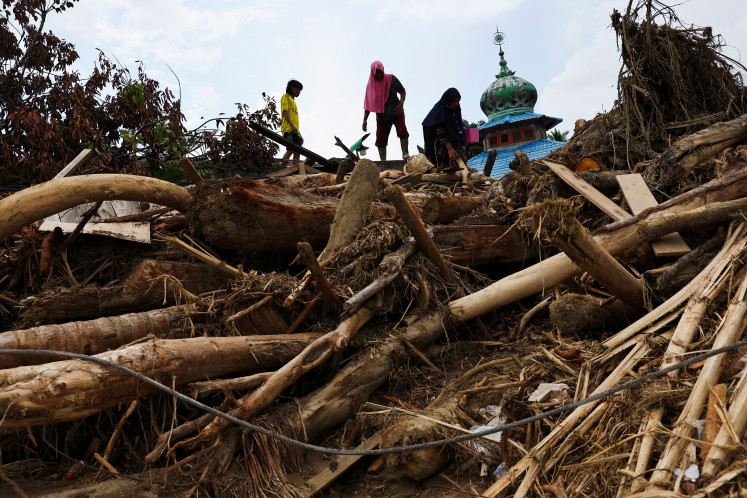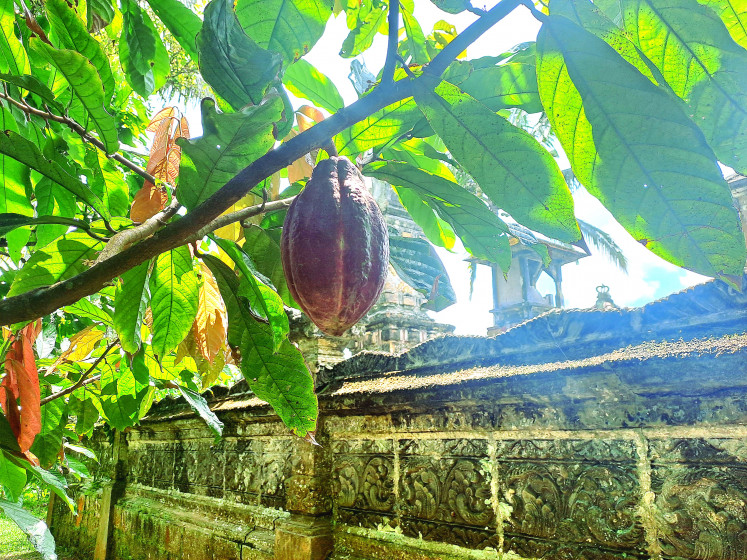Popular Reads
Top Results
Can't find what you're looking for?
View all search resultsPopular Reads
Top Results
Can't find what you're looking for?
View all search resultsThe living Quran in annual contests: Proof of pluralism
Change text size
Gift Premium Articles
to Anyone
T
he Quran acknowledges religious pluralism and calls for religious tolerance as illustrated in several verses that confirm the existence of varied religions and the Almighty’s command to maintain peaceful interfaith coexistence. In a pluralistic society, these principles are paramount and must be preserved and realized.
In our country, one way to implement them is through public engagement in the annual national and local Quran Recitation Competitions (Musabaqah Tilawatil Quran/MTQ).
This is one of the biggest Islamic events in our country, whose benefits should be not only be enjoyed by Muslims but also by all citizens.
Although the MTQ is theoretically exclusive to Muslims, it could be open for participation from other religious followers albeit in different ways.
The most recent MTQ held in Lombok, West Nusa Tenggara (July 27 — Aug. 7), is an extremely important example of how people with varied ethnic and religious backgrounds engage publicly in an Islamic event.
This event makes two important points. First, it has successfully offered an arena where Muslims vie in mastering the holy scripture through their eloquent recitation, beautiful writing of its script, precise translation and interpretation that in turn increase piety and religious observance, as observed by the American scholar Anna Gade.
Second, the MTQ in Lombok has also successfully become a medium of participation for various people. Muslims have cooperated with Hindus, Christians and other minority religious adherents to make the event successful. It has spurred social proximity and convergence and diminished divergence and segregation.
The public engagement has been realized through myriad ways.
For example, Muslim students and their Hindu and Christian colleagues collaborated beautifully to sing the MTQ anthem and dance together during the opening ceremony. The dance symbolizes the coming of Islam from Java to Lombok’s northern coastal village of Bayan by one of the nine saints from Gresik, East Java.
Furthermore, the presence and contribution of the Chinese community could be seen from the use of lanterns lighting the main streets surrounding the arena. Pecalang (civil guards) of Hindu-Balinese communities were involved in safeguarding the city’s main streets where competition participants from throughout the country paraded prior to the opening of the event.
Such participation is a good example of how the spirit of pluralism and tolerance highlighted in the Quran is practiced, having profound impacts on social integration. This is a concrete example of the living Quran — the ways in which the Quranic tenets and fundamental principles are employed in Muslims’ daily routines and in their peaceful interactions with others.
The contribution of people from various ethnic-religious backgrounds in the event reflects the actual condition of West Nusa Tenggara, a highly pluralistic society. However, this should also work well for the other regions and provinces, since there is no place in this country with a single religion.
West Nusa Tenggara lies between the Hindu-majority island of Bali in the west and Christian, mainly Catholic-majority province of East Nusa Tenggara in the east. Not surprisingly, though West Nusa Tenggara is predominantly Muslim, and Lombok is well-known as the island of “a thousand mosques”, it is also a home to a significant number of Hindus, Christians, Buddhists and other religious minorities.
They supported the event as reflected in their welcoming flyers and participation, showing what we might call an expression of Islam Nusantara (Islam of the archipelago). Although Islam originates from the Middle East, it can, and should, adapt to local cultures to create a localized and universal religion.
The provincial government wants to preserve the area’s pluralism and religious tolerance, says Governor Zainul Madji, a graduate from the well-known Al-Azhar University in Cairo, and himself a memorizer of Quran verses.
He attempted to present a quite impressive Islamic event where Quranic recitation, local wisdom and public engagement were all presented.
As the event was attended by representatives from a number of Muslim countries and by the secretary-general of the Muslim World League, Sheikh Dr. Abdullah bin Abdulmohsen Al Turki, the message of peace and tolerance was spread worldwide.
This effort should be preserved and continued for the next event. And more importantly, any religious public event should engage the wider public, in ways that do lead people from other ethnic and religious backgrounds to experience spiritual or ritual confusion.
Public engagement is one of the best ways to transform religious values and principles into reality. Excellent principles alone are insufficient. They must be realized through mechanisms and strategies that yield maximum results.
All religions have their own wisdom and teachings, such as love, peace, tranquility and perseverance. However, such fundamental tenets may not be well-articulated if hardly implemented at public occasions.
Although interreligious dialogue is pivotal and must continue to find conceptually applicable interfaith relations, physical engagement and cooperation are no less important.
Because interreligious conflicts and intolerance still occasionally occur, with the latest example in Tanjungbalai, North Sumatra, such public engagement in religious events is mandatory.
As the majority, Indonesian Muslims must be at the forefront of preserving pluralism and fostering tolerance, and the next MTQ and other relevant public Islamic events should adopt and realize these principles.
______________________________________
The author is a lecturer at Mataram State Islamic Institute (IAIN Mataram) and a researcher for Contending Modernities, Indonesia Working Groups, Kroc Institute, University of Notre Dame.




